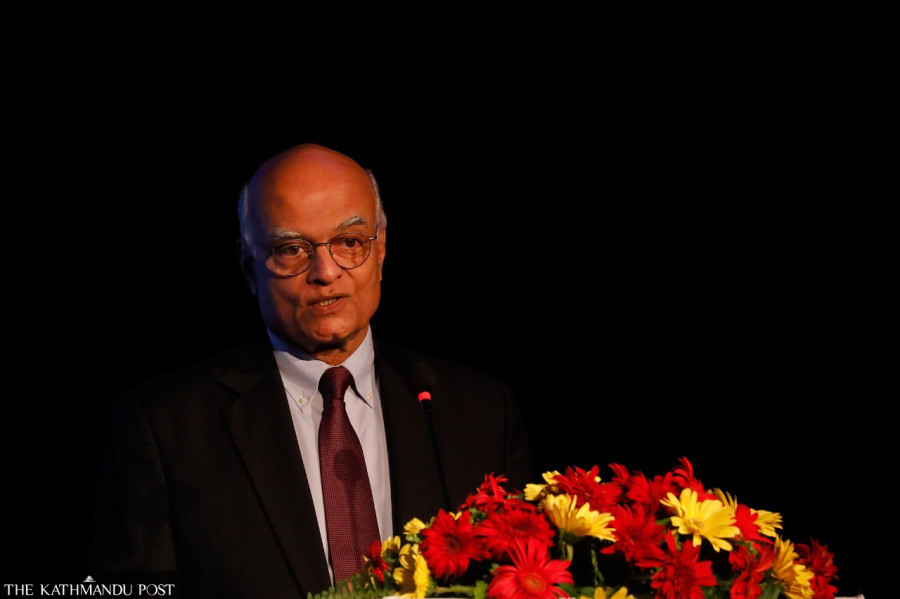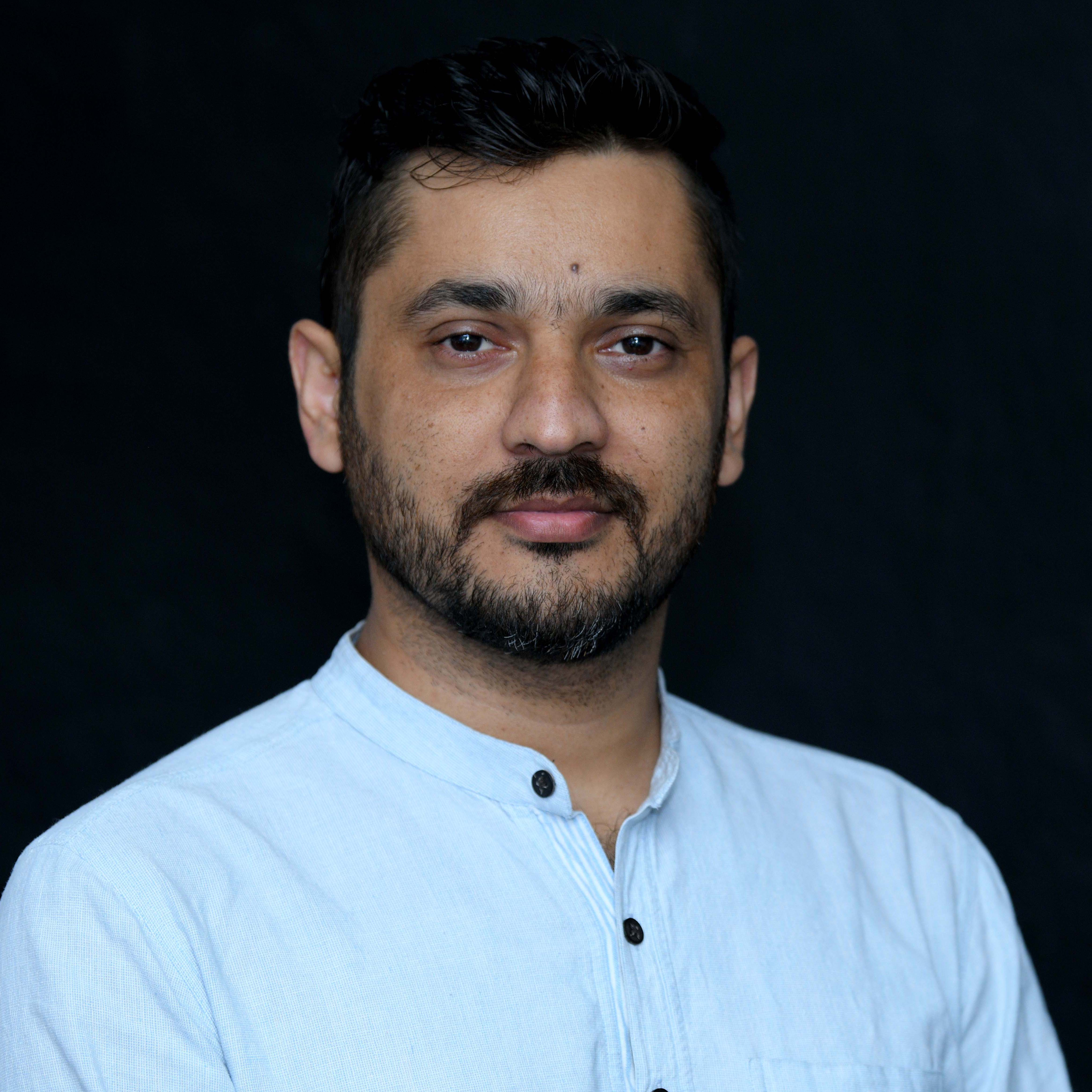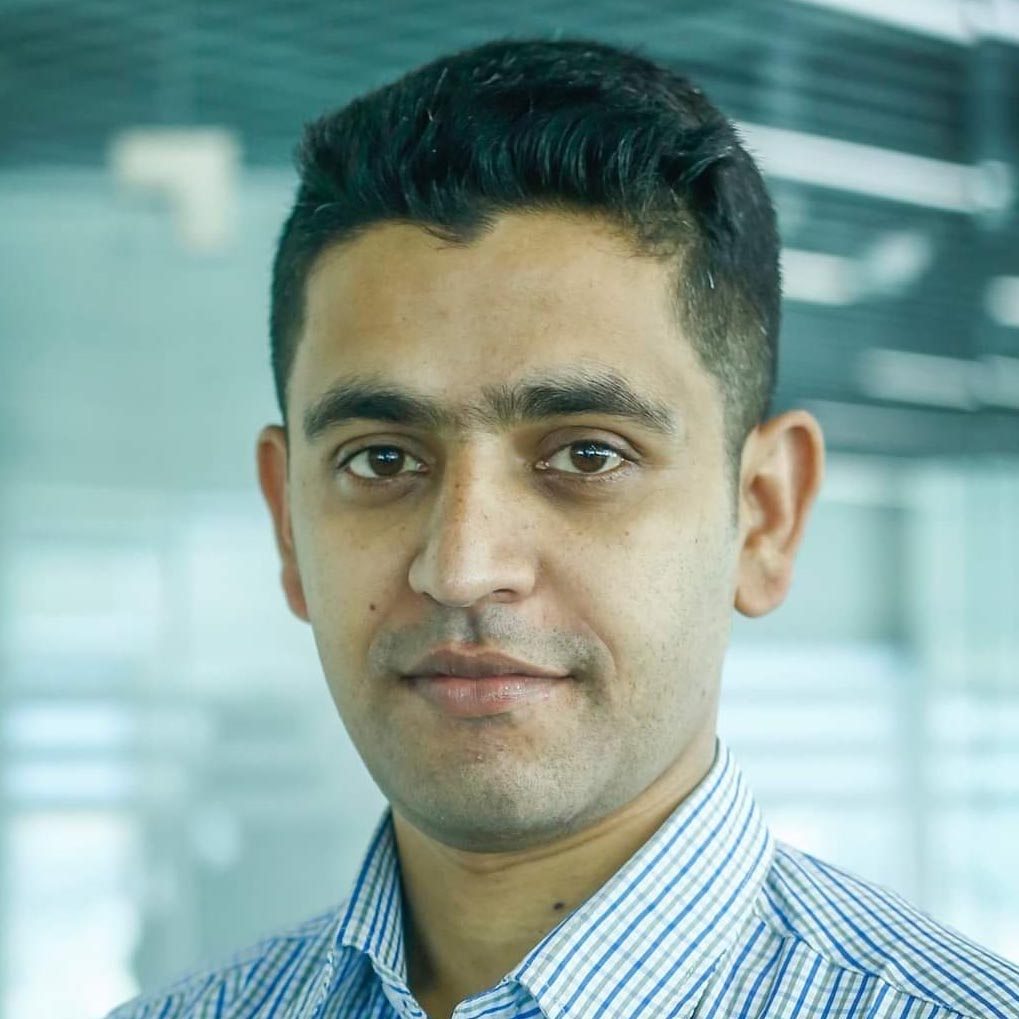Interviews
‘India’s Nepal policy has not changed. There will be shifts, but fundamentally, it’s the same foreign policy’
Former Indian foreign secretary and national security advisor Shivshankar Menon on the changing power dynamics in South Asia, India’s political turmoil, and SAARC.
Dinesh Kafle & Jagdishor Panday
Shivshankar Menon has served as India's national security advisor and foreign secretary. He was also India's ambassador to China and high commissioner to Pakistan. Currently a visiting professor of International Relations at Ashoka University, Menon is also chairman of the advisory board of the Institute of Chinese Studies in New Delhi. In an interview with The Kathmandu Post's Dinesh Kafle and Kantipur Daily's Jagdishor Panday, Menon spoke about the changing power dynamics in South Asia, India's political turmoil, and SAARC.
At the Kantipur Conclave in Kathmandu last week, you spoke about how power is shifting towards Asia. Could you elaborate on South Asia in particular, focusing on the ongoing conflict between nations and the economic crisis in the subcontinent?
If you just look at the political trouble, we have had five new governments in the last year and a half in South Asia. Not all those transitions were normal and smooth. There is an economic crisis; three are already having a debt crisis. Others could have some of them. So, yes, if you look at it objectively, you could say it is a terrible situation. But it also gives an opportunity to break out of your old bad habits which have brought you here. After all, why are you in this mess? That is because of the choices you made before. This is your chance to change those choices—to look at South Asia as a whole. Because, you have a common interest here—both on the economic side and the political side, where bringing stability is important. Without stability, you will never be able to improve the welfare of your people. That was the point I was trying to make—yes, there is a crisis, but you have to look at it as an opportunity as well.
For instance, India in 1991 went through a terrible economic and payment crisis. But we chose to use it to break out of the licence permit raj and open up the economy. The world was also changing, with the end of the Cold War and collapse of the Soviet Union, and so on. So it's the same thing. For me, this is a moment where you have the option of changing many things fundamentally. And people will understand, because they can see the economic crisis. They can see that jobs are scarce, international tourism is down, and sources of income are drying up. So people will accept the idea that you need to change things, that we should not end up in the same mess by doing the same thing. That, I think, is important. Politically, you have a moment of opportunity. And if you look at Asia as a whole, this is where all the action is. And unlike in the Cold War or the previous periods, we are not a geopolitical backwater anymore.
So, we should leverage that for our own advantage in South Asia. But again, you have to think of South Asia. If you start thinking that you lose if your neighbour wins, then you are back to where you were. And you will go through more crises.
When it comes to South Asia, India has always been at the centre. How do you view India's position in South Asia after Modi came to power in 2014?
They've always said "neighbourhood first", but I think it's a process of learning also. India is much more active in the neighbourhood today. When the Sri Lanka crisis happened, India spent $3.8 billion in fuel, food, and credit support to Sri Lanka to keep them afloat. If you look at the relationship with Bangladesh, it's been transformed over the last 15 years because we focused on politics and security, and economic connectivity and so on. For me, this is an opportunity for all of South Asia to do something similar—where you see your security as interlinked, you deal with it together; and once you do that, you are a source of stability for each other. It makes sense for you then to work on economic integration, connectivity and so on because it works for you.
The point I made at the Kantipur Conclave (Sept 10-11) was that, unlike in the past, you can't rely on some international order or multilateral organisations the way that you might have relied on before. Because we saw their reaction to the pandemic, to the debt of developing countries. It has been building for years. Everyone has known for years that it's coming. But what have they done? It's pathetic, if you look at it. So, it creates an opportunity today if you look at it differently rather than saying "Oh, look how bad it is." Now, the problem is that we are all trained to look for the bad. There's no story in "Dog bites man"; "Man bites dog" is the story. So that's the problem, and we need to look at it differently. I really think this is a movement where you can make a difference.
In the past few years, China has been increasing its engagement in South Asia. How do you assess it?
I think every country has legitimate interests in developing its relationship with China. When it comes to Nepal-China relationship, that's between Nepal and China. India will tell Nepal how it feels if Indian interests are affected. Just like if what India is doing with China affects Nepal's interests, Nepal will tell us. And then we will have to work out something among ourselves so that we don't hurt each other's interests. For instance, nobody in India objects to Nepal's economic relations with China. They build projects, which are for the benefit of Nepal. That is good. But when you look at the military dimensions of the relationship, then it's a whole different calculus. When China sends a submarine to a Sri Lankan port, for instance, then India will react differently. So, I think it's a question of being sensitive to each other's interests. That's why I say, “Do the politics and the security”. Make sure that you are a source of stability for each other, that you are not posing difficulty or threats to each other. You need to do that as the basis on which you build the rest of it. You can't expect to only do economics or only politics. In today's world, you have to do both.
China and the US are both aggressively pursuing their interests in the region —the former with the Belt & Road Initiative and the latter with the Indo-Pacific Strategy. What are your thoughts?
This thing about who came first and who started it first depends on your ideological predilection. The fact is there is great power rivalry in the region between China and the US. You can say it's a reaction to China's rise. The Americans will say, "Oh, but they're threatening us and trying to be a competitor to displace us.” The Chinese will say, "The US is trying to prevent our rise because they don't want an equal. So, each one will blame the other, and we don't have to choose. The fact is, there is a great power rivalry.
How can we tackle it?
The fact is, take what you can—from both. Why are they coming to Nepal and asking it to join the BRI or the IPS? So do what's in your interest. It's not a question of choosing sides. Frankly, I don't think you have to. You have agency in these relationships. And you have more agency because of the rivalry. So, use your agency for your interests. That's my simple point. Frankly, we have common interests in South Asia. That's why I say: Think for South Asia.
In the past few years, there's been a proliferation of regional organisations such as Quad, Aukus and Brics while the UN has been there all along. How do you see these new organisations faring?
Whether it is the UN or Quad or even these plurilateral mini-organisations, they are all organisations of member states. They can only be as efficient as the member states want them to be. If the member states are fighting, these organisations will be useless. And that's really what's happened in an era of great power rivalry now. You've seen how ineffective the UN and other multilateral organisations have been. How effective was the WHO for Covid-19? Not very. How effective are the World Bank and the IMF for the debt crisis? Not much. But that's because the member states are quarrelling. So you can't expect an organisation of member states to be more effective than the member states themselves want or allow it to be. So people look for plurilateral groups—groupings of other people who are like-minded; coalitions of the willing and the able. And they'll find other people with whom they have interests.
My own feeling has been that you will see more and more such issue-based coalitions of the willing, where on one issue a particular set of countries will work together, and on another issue, it will be a different set. For instance, it would be unfair to ask Nepal to contribute to Indian Ocean maritime security. But when it comes to cybersecurity, Nepal has interests, like everybody else in South Asia. So, depending on the issue, we'll get issue-based coalitions of the willing and the able. You'll need to bring some ability to the table, otherwise, others will say "What're you doing here?" You can't be only a taker in these situations. And you'll see more and more of this. So people say "Oh, the international system is fragmenting, the UN is ineffective" and so on. Why blame the UN? Frankly, great power rivalry is the historical norm. It's an exception that 20 years following the fall of the Berlin wall, from 1989 until the global financial crisis [of 2008], when there was unipolar US dominance on the system, that there was no rival. Otherwise, there's always been rivalry, whether it's the US, the Soviet Union, Britain or France. In the international system, this is the norm. You might as well get used to how to navigate it.
Coming to India-Nepal relations, how do you assess the Narendra Modi government's foreign policy?
It's the foreign policy of India. There will be shifts, but fundamentally, it's the same foreign policy. That's because the Indian interests don't change just because you change the government. And when you deviate from those interests, whichever government it might be, then reality will bring you back on track immediately. So India has an interest in Nepal's peaceful, democratic development. India has a binding interest in a peaceful periphery. Otherwise how are we going to develop in an unstable subcontinent? So we have a common interest here, and that will drive Indian policy right through.
When Modi came to power in 2014, he came up with the idea of 'neighbourhood first'. You've worked as an Indian diplomat under different regimes. Do you see a policy shift in the neighbourhood?
Every government will say their policy is new, right? After all, it is a democratic competition, where you have to prove you are better than anybody before you, and that you are new and improved. For me, the question is not the slogans or the personalities. Look at what they do. And measure what they do against what people have done before. Has that changed fundamentally? That's the question you have to ask yourself. There will be shifts in the way of expressing it, especially today where public opinion matters much more, where social media is amplifying every opinion, where the distinction between fact, opinion, analysis, information, misinformation, ignorance—all this has been wiped clean. So today, the battle for public opinion will mean that there'll be many such slogans. But the core of policy is what people do, not what they say. So that's where you look for whether there's continuity or so on. For me, there is fundamental continuity in India's policy in the neighbourhood. They might change the slogan and so on, and that's useful because it gives journalists a story.
How do you assess India's press coverage internationally in the last seven or eight years?
I don't study the media coverage of India, and frankly I am an old man. I have seen times when they said, "Oh, India is going to break apart when Nehru dies.” People wrote books about this. We've had periods of good coverage, and of bad coverage. But India goes on.
Even if we keep the press coverage aside, how do you think India is faring in terms of internal politics, there's a clear divide between the Hindus and the Muslims, with Hindutva fundamentalism taking shape?
Indian politics will take care of itself at home. And it stays at home. We don't export our politics. What we do, we'll do at home ourselves.
But with so much internal conflict going on, how does India posit itself as a ‘Vishwaguru’ as Narendra Modi’s likes to put it?
There's a churn in Indian politics, but this is a new phenomenon. And what is the fundamental direction of Indian politics? It is to include more and more people in it. We had universal suffrage from 1950 onwards. Suddenly you had over 200 million people who could vote. And socially also, you've gradually improved. Now, increasing numbers of people participate in the political process. And at each stage, you can see the change that it brings about in the politics of India. Yes, it will be messy and noisy. Yes, people will argue and fight. We love arguing. But don't let the noise fool you about where India is going. We've always been noisy. And India will take care of its politics. Don't worry. But India does not export its politics, unlike other countries. We're not telling other people, "Oh, you must be like this, you must do this in your internal politics." We'll help people who ask us to help, and that is it.
But there is a perception in Nepal that India tried to export its politics during 2015 when Nepal was writing its constitution.
I think it's very easy to find an external excuse. In Indian politics also, we always say, "Oh, foreign hand!" This has been going on since the 1960s, when you'd blame somebody else. Why? Because you're not handling your own problems. So, for your internal problems, it's much easier to blame somebody outside. From India's point of view, frankly, we might have preferences. When we're asked, we might tell you what we think. But we don't impose anything on you. We supported the Nepali processes, which have led to democratisation all the way from the beginning of the process when you became a constitutional monarchy, and when you became a republic. It's not us telling you what to do. It's the Nepali parties who’ve decided in each case.
What are your thoughts on Saarc? Do you see it reviving anytime soon, especially with regard to the formation of other regional partnerships?
My opinion is that it should be rejuvenated. We need to use what we have in South Asia. There's no point creating new organisations. But reviving it or not is up to the member states. I think Saarc [South Asian Association for Regional Cooperation] has two issues: One, whether the member states can agree on a common vision; two, it has a limited mandate—it's purely economic, social issues and so on. And as I said, in today's globalised world, you cannot separate these things. There is no simple line. In 1985, when we started Saarc, we needed to say that to reassure people. People didn't know what Saarc was, whether it would interfere with our sovereignty. Now, we know what it is. And now we are much more developed, much more capable. So maybe we should look at the fundamentals of Saarc. Or, if Saarc can’t do those things, do it somewhere else—bilaterally, in small groups, whichever way you like. For me, the most important thing is that it must work, rather than saying that we have to save Saarc in this form. That's not the point here. Are you getting outcomes which are good for you?
Is Bimstec a replacement for Saarc?
I don't care what initials you use, as long as you find the countries who are willing to work together and produce outcomes. For me, the measure is the outcomes.
What are those outcomes?
The first thing is that we have an economic crisis that we need to take care of. We need to improve our economic future, do something for the wellbeing of our people. We’ve been hit by the pandemic, the debt crisis, and the slowing world economy. And our politics. Every country has its own internal political problems. We need to work for each other’s stability; we need to start by saying that I will not allow my politics to affect you, you don't allow your politics to affect me, and if it does, we’ll sit and talk about it and see how we deal with it. But that's only the minimum, the negative. The positive is, how can we contribute to each other's security? How can we actually improve this situation that we find ourselves in? You see the transformation in India-Bangladesh relations in the last 15 years. It is based on that. Once you do that, then the other things start sticking–whether it’s connectivity, power, energy, whatsoever. So, it can be done, and maybe this is the moment.




 22.64°C Kathmandu
22.64°C Kathmandu













